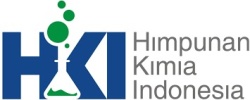The Role of Problem-Based Worksheets in Enhancing Students’ Critical Thinking Skills
Abstract
Research has been conducted with the aim of being able to determine the effect of Problem Based Learning (PBL) based LKPD on the critical thinking skills of students in class XI IPA. The subjects in this study were students of class XI IPA totaling 30 people. This research was conducted in a way that the control class applied LKPD which was taught with a conventional learning model while the experimental class applied LKPD based on PBL learning model which was conducted for 3 meetings. The t-test results obtained sig.2 tailed value < 5% significant level before treatment 0.007 ≤ 0.05 then H1 is accepted and H0 is rejected, while after treatment is 0.160 ≥ 0.05 then H0 is rejected and H1 is accepted. Thus it can be concluded that LKPD based on problem-based learning (PBL) does not significantly affect the critical thinking skills of students in class XI IPA. However, the results of the N-gain Score Test show that the mean value of the N-gain Score in the experimental class is 12.73 higher than the control class which is only 8.73. Thus it can be concluded that the use of PBL-based LKPD has an effect on the experimental class and can improve critical thinking skills by 12.73 compared to the control class which can only increase by 8.73 after learning takes place.
Downloads
References
A. Alchihabi, O. Ekmekci, B. B. Kivilcim, S. D. Newman, and F. T. Yarman Vural, “Analyzing Complex Problem Solving by Dynamic Brain Networks,” Front. Neuroinform., vol. 15, Dec. 2021, https://doi.org/10.3389/fninf.2021.670052.
T. Tokuhama-Espinosa, K. Simmers, D. Batchelor, A. D. Nelson, and C. Borja, “A Theory of Mental Frameworks,” Front. Psychol., vol. 14, Jul. 2023, https://doi.org/10.3389/fpsyg.2023.1220664.
T. Triastuti and E. W. Laksono, “Validation of critical thinking test to senior high school students,” J. Phys. Conf. Ser., vol. 1806, no. 1, p. 012201, Mar. 2021, https://doi.org/10.1088/1742-6596/1806/1/012201.
Rizki Nur Fadillah, Budi Jatmiko, and Wahono Widodo, “Critical Thinking Profile of Senior High School Students in terms of Argumentation-Based Learning,” Stud. Learn. Teach., vol. 3, no. 3, pp. 149–162, Jan. 2023, https://doi.org/10.46627/silet.v3i3.174.
G. Simanjuntak, R. S. Wahyuningtyas, and J. Mamangkey, “Penerapan Pembelajaran Online dengan Model Project Based Learning (PjBL) Terhadap Hasil Belajar Siswa,” Intel. J. Ilmu Pendidik., vol. 5, no. 1, pp. 57–61, Aug. 2022, https://doi.org/10.33366/ilg.v5i1.3503.
F. Fadhilah, M. Husin, and R. F. Raddhin, “PjBL vs PBL Models in Higher Education: A Comparative Study Using Analysis of Covariance,” JIPF (Jurnal Ilmu Pendidik. Fis., vol. 8, no. 1, p. 85, Jan. 2023, https://doi.org/10.26737/jipf.v8i1.3700.
O. K. Wati and D. U. Wutsqa, “Comparison of the Effectiveness of PBL and PjBL Learning Models in Terms of Self-Regulated Learning and Mathematical Reasoning,” Int. J. Sci. Res. Manag., vol. 12, no. 08, pp. 511–524, Aug. 2024, https://doi.org/10.18535/ijsrm/v12i08.m01.
S. K. Edy, S. Syamsuri, H. Nindiasari, and N. Novaliyosi, “The Influence of Problem-Based Learning (PBL) Model on Mathematical Critical Thinking Abilities: A Meta-Analysis,” Int. J. Res. Publ. Rev., pp. 4595–4600, Jun. 2024, https://doi.org/10.55248/gengpi.5.0624.1566.
W. K. Niswa, A. Agustiningsih, and K. Mahmudi, “Problem-Based Learning (PBL): An Innovation in Natural Sciences Studies to Improve Critical Thinking Skills,” Pancar. Pendidik., vol. 11, no. 2, Feb. 2022, https://doi.org/10.25037/pancaran.v11i2.389.
D. A. Wahyuningtyas, F. M. Rohmanurmeta, and S. Widyastuti, “Efektivitas Model Problem-Based Learning Berbantu LKPD Etnosains Ponorogo Terhadap Keterampilan Berpikir Kritis Ipa SD,” Pendas J. Ilm. Pendidik. Dasar, vol. 8, no. 1, p. 5050, Jul. 2023, https://doi.org/10.23969/jp.v8i1.7522.
Y. Darmawati and A. Mustadi, “The Effect of Problem-Based Learning on the Critical Thinking Skills of Elementary School Students,” J. Prima Edukasia, vol. 11, no. 2, pp. 142–151, Jul. 2023, https://doi.org/10.21831/jpe.v11i2.55620.
H. Jeong and C. E. Hmelo-Silver, “Productive use of learning resources in an online problem-based learning environment,” Comput. Human Behav., vol. 26, no. 1, pp. 84–99, Jan. 2010, https://doi.org/10.1016/j.chb.2009.08.001.
J. Balderas-Solís, R. V. Roque-Hernández, R. Salazar-Hernández, and C. L. Ramos Monsivais, “The Importance of Learning Resources for University Students During Emergency Remote Learning,” Int. J. Emerg. Technol. Learn., vol. 17, no. 14, pp. 221–234, Jul. 2022, https://doi.org/10.3991/ijet.v17i14.30677.
T. H. Hartati, L. Luzyawati, and I. Hamidah, “Influence of E-Worksheets Problem Based Learning on Problem Solving Capability Students on Polluting Materials Environment,” Rep. Biol. Educ., vol. 5, no. 1, pp. 11–20, Jun. 2024, https://doi.org/10.37150/rebion.v5i1.2318.
A. M. Persky, M. S. Medina, and A. N. Castleberry, “Developing Critical Thinking Skills in Pharmacy Students,” Am. J. Pharm. Educ., vol. 83, no. 2, p. 7033, Mar. 2019, https://doi.org/10.5688/ajpe7033.
L. Della, “The Effectiveness of PBL-Based WORKSHEETS for Empowering the Senior High School Student’s Critical and Creative Thinking Skills,” Int. J. Soc. Sci. Hum. Res., vol. 04, no. 07, Jul. 2021, https://doi.org/10.47191/ijsshr/v4-i7-29.
T. Istni, D. H. Utomo, and S. Utaya, “Pengaruh model Problem Based Learning (PBL) berbantuan LKPD terhadap keterampilan berpikir kritis mata pelajaran Geografi siswa XI IPS MA Bilingual Batu,” J. Integr. dan Harmon. Inov. Ilmu-Ilmu Sos., vol. 2, no. 2, pp. 194–203, Feb. 2022, https://doi.org/10.17977/um063v2i2p194-203.
T. Afridiani, S. Soro, and A. Faradillah, “Pengaruh Model Problem Based Learning (PBL) Berbasis Lembar Kerja Siswa (LKPD) Terhadap Keterampilan Pemahaman Konsep Matematis,” Euclid, vol. 7, no. 1, p. 12, Jan. 2020, https://doi.org/10.33603/e.v7i1.2532.
T. Hidayati and D. Purwaningsih, “The Effect of Applying Problem-Based Learning Model on Students’ Critical Thinking Ability Science Subjects in Grade V Elementary School,” JPI (Jurnal Pendidik. Indones., vol. 12, no. 3, pp. 576–585, Oct. 2023, https://doi.org/10.23887/jpiundiksha.v12i3.55235.
N. P. S. Adnyani and N. W. Suniasih, “Problem Based Learning Models on Critical Thinking Ability in Science Lessons of Grade V Elementary School,” Think. Ski. Creat. J., vol. 6, no. 2, pp. 145–151, Dec. 2023, https://doi.org/10.23887/tscj.v6i2.61354.
 This work is licensed under a Creative Commons Attribution-ShareAlike 4.0 International License. Copyright is retained by the authors, and articles can be freely used and distributed by others.
This work is licensed under a Creative Commons Attribution-ShareAlike 4.0 International License. Copyright is retained by the authors, and articles can be freely used and distributed by others.

 Sudirman Sudirman(1*)
Sudirman Sudirman(1*)












